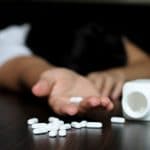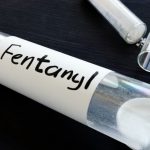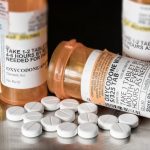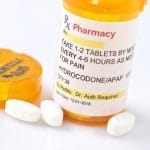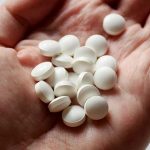When you hear the term “drug abuse,” you might think of illegal street drugs like cocaine, heroin, and meth. However, many people abuse legal, prescription drugs that they received from their doctor or found in their family’s medicine cabinet.
Prescription drug abuse often leads to addiction. If you or someone you love struggles with prescription drug use, it’s important to seek professional treatment.
What Is Prescription Drug Abuse & Addiction?
Prescription drug abuse occurs when you use a prescription drug in a manner not prescribed by your health care provider. For example, you might:
- use the drug more often than prescribed
- use higher doses than prescribed
- mix the drug with alcohol or other drugs
- crush the pills so you can inject or snort them
- use the drug without a prescription
All of these forms of drug abuse pose a high risk of addiction. Addiction is a serious disease that makes you feel unable to control your drug use. Other symptoms may include:
- tolerance (needing increasingly higher doses of a drug to feel the desired effects)
- physical dependence (feeling unable to function normally without a drug)
- doctor shopping (visiting multiple doctors to get multiple prescriptions of the same drug)
- isolating from friends and family members
- falling behind at work or school
Types Of Prescription Drug Abuse & Addiction
People abuse many different kinds of prescription medications. However, the medications most commonly linked to abuse and addiction are opioids, central nervous system depressants, and stimulants.
Opioids
Opioids are powerful painkillers. They’re prescribed to treat various types of pain, including chronic pain, cancer pain, and post-surgery pain.
Some opioids are naturally derived from the opium poppy plant, while others are human-made. The most popular prescription opioids include:
- Opana (oxymorphone)
- OxyContin (oxycodone)
- Percocet (oxycodone combined with acetaminophen, which is a pain reliever and fever reducer commonly known as Tylenol)
- Vicodin (hydrocodone)
All opioids are addictive, especially if you abuse them. In addition, opioid abuse can slow down your breathing and cause a life-threatening overdose.
Many opioid overdoses involve fentanyl. Fentanyl is an extremely powerful opioid used to treat cancer pain.
Because it’s cheap, some drug dealers disguise fentanyl as other drugs, including other prescription opioids. That means that if you buy a prescription opioid off the street, you may unknowingly ingest fentanyl and overdose.
Central Nervous System Depressants
Central nervous system (CNS) depressants are substances that slow down your brain activity and make you feel relaxed. Like opioids, they pose a high risk of addiction and overdose.
There are three main classes of CNS depressants:
- benzodiazepines
- non-benzodiazepine sleep medications
- barbiturates
Benzodiazepines (or “benzos”) are used to treat anxiety, panic attacks, sleep disorders, and seizures. Examples include:
- Ativan (lorazepam)
- Klonopin (clonazepam)
- Valium (diazepam)
- Xanax (alprazolam)
As their name suggests, non-benzodiazepine sleep medications are medications that treat sleep disorders but don’t belong to the benzodiazepine class. They include:
- eszopiclone (Lunesta)
- zaleplon (Sonata)
- zolpidem (Ambien)
Barbiturates are used to treat anxiety, sleep disorders, seizures, and tension headaches. They’re also sometimes used to sedate patients before surgery and include:
- mephobarbital (Mebaral)
- pentobarbital (Nembutal)
- phenobarbital (Luminal)
Stimulants
Prescription stimulants are substances that boost your energy, concentration, and attention. They’re used to treat attention-deficit/hyperactivity disorder (ADHD) and narcolepsy (excessive sleepiness). Examples include:
- amphetamine (Adderall)
- dextroamphetamine (Dexedrine)
- lisdexamfetamine (Vyvanse)
- methylphenidate (Concerta or Ritalin)
Some teenagers and young adults abuse stimulants to boost academic performance. In fact, prescription stimulants are often called “study drugs.”
Unfortunately, even short-term stimulant abuse can lead to addiction. It can also cause overdose, psychosis (loss of connection with reality), seizures, and heart attack.
Learn more about Prescription Drug Overdose
Treatment Options For Prescription Drug Addiction
Most people with prescription drug addiction will need to attend a treatment program. When you enter the program, a team of medical professionals will work with you to design your personalized treatment plan.
Depending on your needs, your treatment plan may include services such as:
Medical Detox
If you’re addicted to a prescription drug, you’re probably physically dependent on it. That means your body can’t function properly without the drug. When you stop using it, you may experience unpleasant withdrawal symptoms like shaking, anxiety, and trouble sleeping.
You’re more likely to experience withdrawal symptoms if you quit the drug too suddenly. During medical detox, doctors will help you gradually stop using the drug to minimize withdrawal symptoms. They may also prescribe medications to treat certain symptoms.
Behavioral Therapy
In behavioral therapy, a mental health professional will help you identify your triggers (people, places, or other stimuli that make you want to abuse drugs). They’ll teach you helpful ways to deal with those triggers, such as deep breathing, exercising, and journaling.
In addition, when you pass drug tests or make other positive life changes, your therapist may offer rewards (such as cash or gift cards) to motivate you on your recovery journey.
Medication-Assisted Treatment
If you struggle with prescription opioid addiction, your doctors may recommend medication-assisted treatment (MAT). During MAT, you’ll be given FDA-approved medications that can reduce cravings and withdrawal symptoms. These medications include:
- buprenorphine
- methadone
- naltrexone
If you or a loved one struggles with prescription drug misuse, please reach out to Northeast Addictions Treatment Center. We offer cognitive behavioral therapy, medication-assisted treatment, and many other types of evidence-based care.
FAQ
- Can I afford prescription drug addiction treatment?
Often times, your health insurance plan can cover a majority of the cost of your treatment from prescription drug addiction. Not sure where to start? We can help verify your insurance plan and point you in the right direction, even if it’s not with us.
- Can I force a loved one to go to rehab for prescription drug abuse?
If you live in the state of Massachusetts, there is a law that passed, known as Section 35. Under this law, it “allows a qualified person to request a court order requiring someone to be civilly committed and treated involuntarily for an alcohol or substance use disorder”.
- How can I stage an intervention for prescription drug addiction?
If you have tried talking to your loved one about their issue with prescription drugs and still can’t get them into treatment, give us a call. We can talk you through the steps needed to hold an intervention and can even send a certified interventionist to help assist you during this process. There is some planning that goes into place in order to conduct a successful intervention.
- How do I talk to a loved one about prescription drug addiction?
Talking to a loved one about prescription drug addiction treatment can be tough. It’s important to go about it in a healthy way, without them feeling judged or pressured. Here are some tips on talking to a loved one about addiction treatment.
- What does prescription drug treatment look like?
Treatment for prescription drug abuse often comes in multiple stages. The stages are dependent on what substance(s) an individual is using and how often. Typically, treatment consists of detox, inpatient/residential treatment and/or intensive outpatient treatment. This process usually takes on average 90 days. An individualized plan will be made for each patient by their clinician and therapist.
Sources
Written by
Northeast Addition Editorial Team
©2024 Northeast Addition Center | All Rights Reserved
This page does not provide medical advice.


